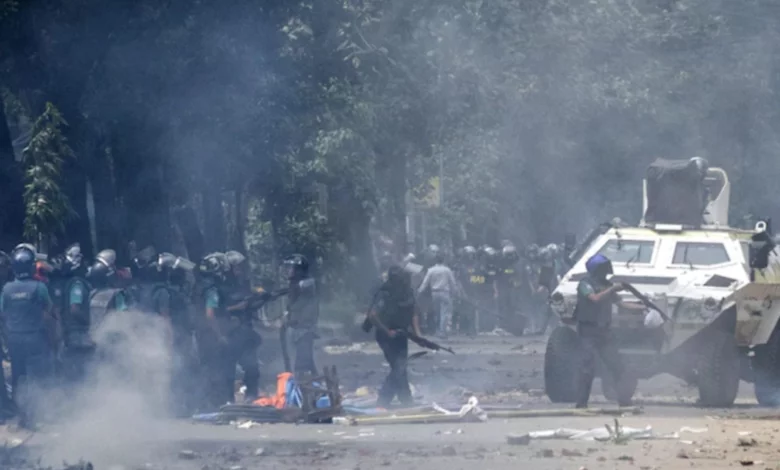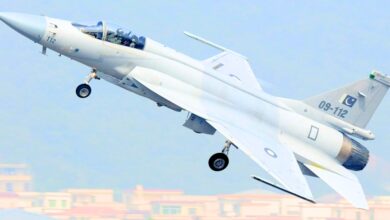
91 Dead as Dhaka Erupts into Violence
Dhaka Erupts in Deadly Violence: 91 Dead as Protests Against Prime Minister Sheikh Hasina Intensify
91 Dead as Dhaka Erupts into Violence The streets of Dhaka turned into a battleground on Sunday as hundreds of thousands of Bangladeshi protesters, demanding the resignation of Prime Minister Sheikh Hasina, clashed with government supporters. The violence marked one of the deadliest days in the ongoing demonstrations, which have now claimed at least 261 lives since their onset in July.

The unrest, which initially started as protests against civil service job quotas, has expanded into widespread calls for Hasina to step down after 15 years in power. On Sunday alone, 91 people were killed, including 14 police officers, as opposing groups battled with sticks, knives, and gunfire. The violence also saw protesters storming a police station in Enayetpur, resulting in the deaths of 11 officers, according to Deputy Inspector General Bijoy Basak.
91 Dead as Dhaka Erupts into Violence
Reports from AFP journalists indicated sustained gunfire after dark, with protesters defying a nationwide curfew and mobile internet services being heavily restricted. Despite the heavy crackdown, soldiers and police were less intervening compared to previous months.
As the chaos continued, protest leaders called for further action. Asif Mahmud, a prominent figure in the civil disobedience campaign, urged supporters to gather in Dhaka on Monday for what he termed the “final protest,” calling for liberation through “bamboo sticks” in a Facebook post.
In Dhaka’s Shahbagh Square, vast crowds clashed with ruling party members, resulting in fatalities and street battles across multiple locations. Police Inspector Al Helal reported the deaths of two young men in Munshiganj district due to hacking and gunshot wounds. Another officer described Dhaka as a “battleground.”
Protesters also targeted a ruling party office in Kishioreganj, setting it ablaze and killing two individuals. Former military officers, including ex-army chief Gen Ikbal Karim Bhuiyan, have joined the protests, demanding the withdrawal of armed forces and accountability for alleged atrocities committed by the government.
Current army chief Waker-uz-Zaman affirmed the army’s commitment to the people but did not explicitly state support for the protests. The demonstrations, which initially focused on job quotas, have now grown to encompass broader dissatisfaction with the current administration.
In a show of solidarity with the protesters, 47 manufacturers from the garment sector have voiced their support. Meanwhile, Obaidul Quader, general secretary of the ruling Awami League, has called on party activists nationwide to demonstrate their backing for the government.
The unrest, sparked by the reintroduction of a controversial job quota scheme, has since been partially overturned by the country’s top court.






